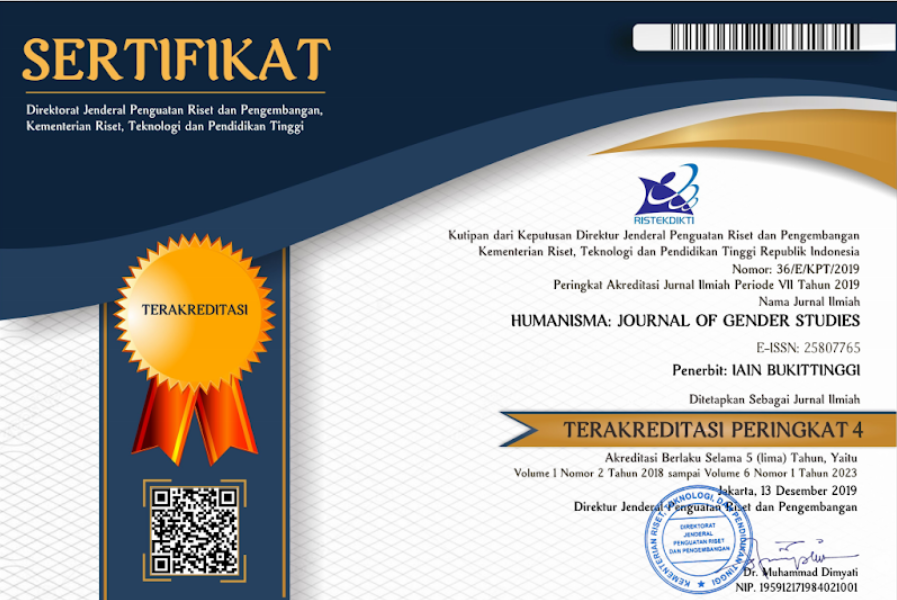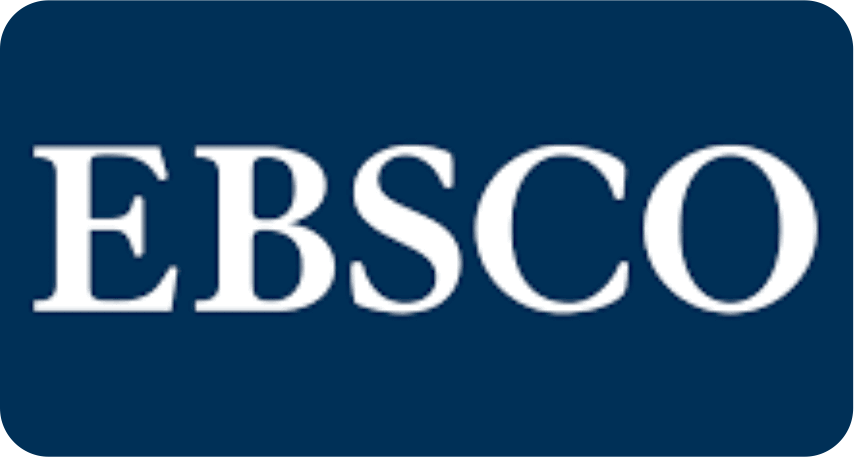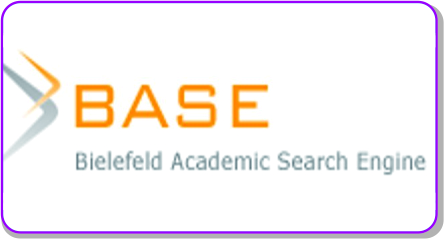Fenomena Lesbian, Gay, Biseksual Dan Transgender (Solusi Dan Upaya Pencegahannya)
DOI:
https://doi.org/10.30983/humanisme.v3i2.2415Keywords:
LGBT, phenomenon, solutionAbstract
The phenomenon of lesbian, gay, bisexual and transgender (LGBT) in millennial times is no longer considered a new thing in society. Previously these behaviors were considered strange for some people, but in an age of increasingly sophisticated technology, this has become commonplace. Today many have openly stated and identified themselves as the identity of LGBT people or as supporters of their development. This large wave of groups striving to be recognized in the eyes of the world has been carried out intensively and continuously. Indonesia as the largest Muslim cannot be separated from the influence and threat of LGBT. This study aims to explore how the phenomenon of LGBT development and illustrate how solutions and efforts to prevent it. This research was compiled using a literature review approach related to LGBT studies. The results of the excavation found that the LGBT movement is no longer just an individual movement but has entered the public sphere. To overcome this condition, in addition to regulations relating to the movement of LGBT people, in the smallest environments in households must prepare methods and ways to prevent the presence of LGBT.
References
Buku Teks
Al-Jaziri, Abdurrahman, al-Fiqh ‘ala Madzahib al-Arba’ah, Kairo: ar Rayyan, tth.
Aput, Hartono Faktor Risiko Kejadian Penyakit Menular Seksual (Pms) Pada Komunitas Gay Mitra Strategis Perkumpulan Keluarga Berencana Indonesia (Pkbi) Yogyakarta. Diss. Universitas Muhammadiyah Surakarta, 2009.
Connolly, Peter. Aneka Pendekatan Studi Agama terjemahan dari Approaches to the Study of Religion, Yogyakarta: LKIS, 2002, cet. I
Hawari, Dadang. Pendekatan Psikoreligi pada Homoseksual, Jakarta: Balai Penerbit FK- UI, 2009
Husaini, Adian. LGBT di Indonesia, (Jakarta: INSIST, 2015
Kartono, K. Psikologi Abnormal dan Abnormalitas Seksual, Bandung: Mandar Maju, 2005.
M, Ayu Memahami Kesehatan Reproduksi Wanita Edisi 2. Jakarta: EGC. 2009
Nata, Abuddin, Metodologi Studi Islam, (Jakarta : Raja Grafindo, 2008) Edisi Revisi-12
Sabiq, Sayid. Fiqh Sunnah, 2 Beirut : Daar al-Fikr, tth
Soetjiningsih, Tumbuh Kembang Remaja dan Permasalahannya, Jakarta: CV. Sagung Seto, 2004
Suprayogo, Imam dan Thobroni, Metodologi Penelitian Sosial-Agama, Bandung : Rosda, 2001 Cet. I
Jurnal Ilmiah
Abdul Malik, Gazali ‘Fenomena Lgbt Dalam Perspektif Ham Dan Doktrin Agama (Solusi Dan Pencegahan)’, Refleksi, 2017.
Amran Hassan dan Salleh Amat, Kefahaman Terhadap Aspek Pendefinisian dan Ciri Utama Golongan Homoseksual, E-Bangi, Jurnal of Social Sciences and Humanities, Faculty of Social Sciences and Humanities, Universiti Kebangsaan Malaysia, Vol. 10, No. 2, 2015,Yuniarti, Nurrina. Pendidikan Seks yang Islami bagi Anak-anak (Kajian atas Pemikiran
Abdullah Nashih Ulwan). Diss. UIN Sunan Kalijaga, 2008Puteri, Hesi Eka, Kontribusi BPRS Merealisasi Financial Inclusion dalam Penguatan Ekonomi Lokal: Evaluasi Empiris dan Penguatan Strategi, Islam Realitas: Journal of Islamic & Social Studies, Vol. 8, No. 1, Juni 2015, h. 20.
Rita Subagio, Homoseksual (LGBT) dan Problem Psikologi Sekuler, Jurnal Islamia, INSIST,-Jakarta
Siyoto, Sandu dan Dhita Kurnia Sari. Analisa Faktor-Faktor yang Berhubungan Dengan Perilaku Homoseksual (Gay) di Kota Kediri Di Jurnal Strada Volume 3, No. 1 2014
Siyoto, Sandu, and Dhita Kurnia Sari. "Analisis Faktor-Faktor Yang Berhubungan Dengan Perilaku Homoseksual (Gay) Di Kota Kediri. Di Jurnal Strada Volume 3, No. 1 2014
Yudiyanto, ‘Fenomena Lesbian, Gay, Biseksual Dan Transgender (LGBT) Di Indonesia Serta Upaya Pencegahannya’, Nizham Journal of Islamic Studies, 5.1 (2016), 63–74.
Referensi Online
Antara. (2018, Januari 23). Kalla: LGBT Tidak Akan Legal di Indonesia. Diakses tanggal 14 Desember 2019 http://mediaindonesia.com/read/detail/142012-kalla-lgbttidak-akan-legal-di-indonesia
Downloads
Submitted
Accepted
Published
Issue
Section
License
Authors who publish with this journal agree to the following terms:
- Authors retain copyright and grant the journal right of first publication with the work simultaneously licensed under a Creative Commons Attribution-ShareAlike 4.0. that allows others to share the work with an acknowledgment of the work's authorship and initial publication in this journal.
- Authors are able to enter into separate, additional contractual arrangements for the non-exclusive distribution of the journal's published version of the work (e.g., post it to an institutional repository or publish it in a book), with an acknowledgment of its initial publication in this journal.
- Authors are permitted and encouraged to post their work online (e.g., in institutional repositories or on their website) prior to and during the submission process, as it can lead to productive exchanges, as well as earlier and greater citation of published work (See The Effect of Open Access).



















